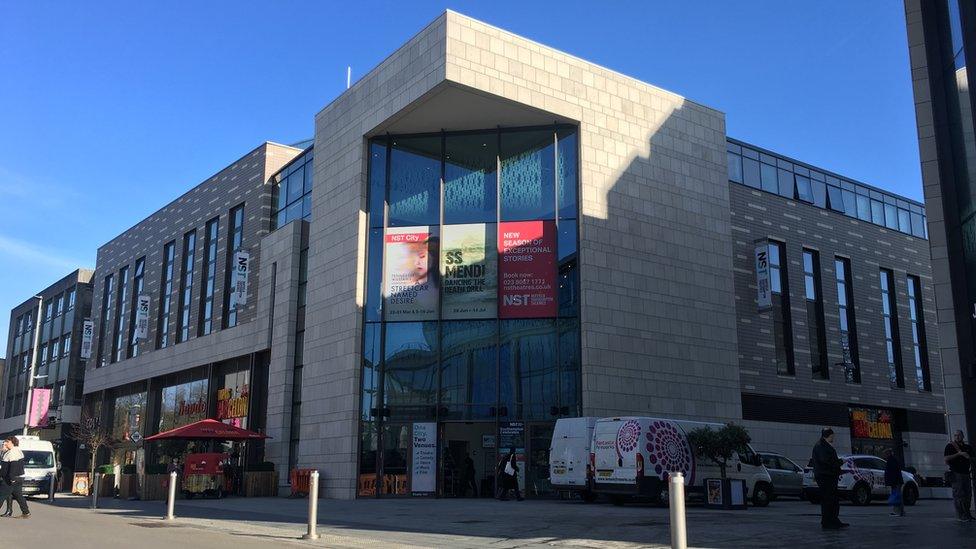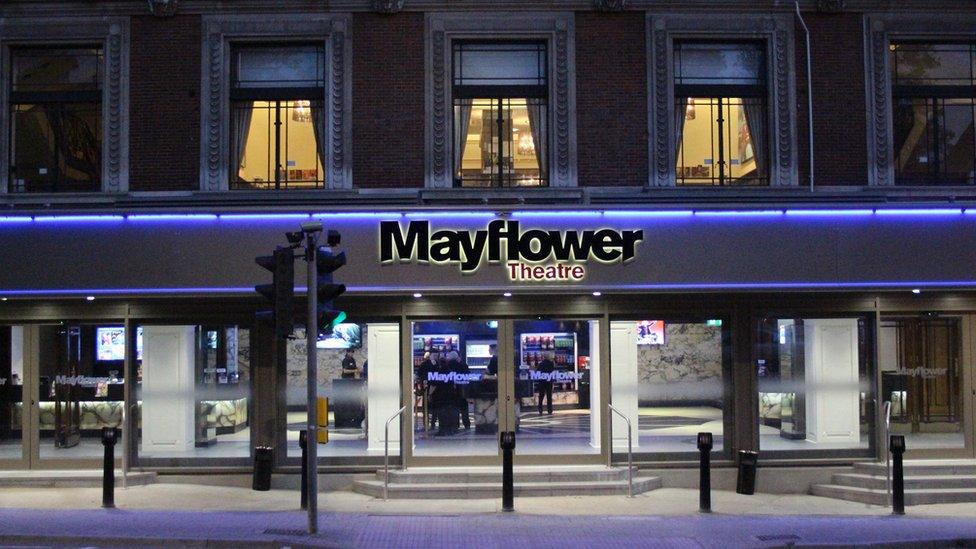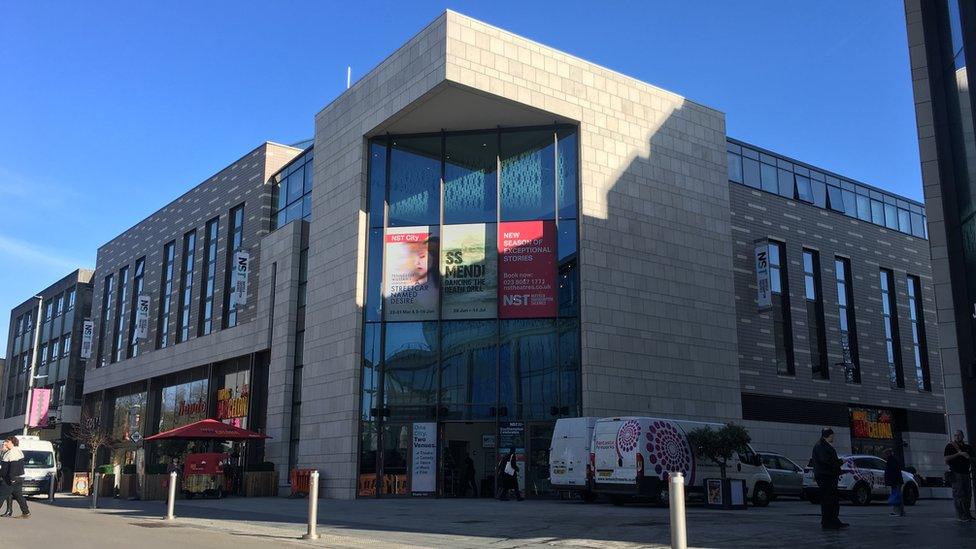Southampton theatre in talks to take over failed rival venue
- Published

The NST city centre theatre opened in 2018
A theatre has begun talks to take over a neighbouring playhouse whose operator suffered a financial collapse.
Administrators announced the permanent closure of Nuffield Southampton Theatres (NST) on 2 July, citing "severe cash flow issues".
Southampton's largest theatre, the Mayflower, said it was negotiating to reopen the NST's city centre building.
Southampton City Council, which owns the former NST venue, said it was "delighted".
Administrators Smith & Williamson previously said 86 staff would be made redundant with the NST's collapse.
A Joint Administrators' Report, published on 26 June,, external said NST had said it was "running close to break-even" prior to the coronavirus lockdown.
But Arts Council England (ACE) had "concerns about [NST's] performance" and withdrew all grant support on 1 May, with NST filing for insolvency days later.
BBC arts editor Will Gompertz said ACE withdrawing all its funding was "a brutal, mortal blow at a time of unprecedented hardship for the theatre sector".

Mayflower Theatre Trust said it hoped to reopen the NST venue in the near future
ACE said it welcomed the involvement of Mayflower Theatre Trust at a time when it had pre-allocated £1.9m for cultural projects in Southampton.
Regional director Phil Gibby said: "We are extremely pleased that an applicant has emerged from the Southampton City Council process to find an operator."
Southampton city councillor Satvir Kaur, in charge of culture, said the trust had offered a "sustainable" future for the venue.
Michael Ockwell, Mayflower's chief executive, said he hoped to reopen NST as a "creative hub" in the near future.
In May, Mayflower theatre said its shows were cancelled until December because of the pandemic.
NST's city centre building opened in 2018 as part of the council's £30m "cultural quarter" in Guildhall Square.
The original theatre opened in 1964 on the University of Southampton campus at Highfield.

Analysis
By Will Gompertz, BBC arts editor
It is very good news for the people of Southampton that the city centre NST venue will continue as a theatre.
Questions remain, however, about the process that led to what one imagines will become a "Southampton Theatres" offer.
Why was the perception that Covid-19 caused the NST's demise allowed to permeate the public consciousness when ACE knew it was far from the whole truth?
Why couldn't a suitable arrangement for all parties be reached without ACE effectively forcing insolvency on the NST?
And what happens to the £974,000 annual ACE subsidy the NST was receiving?

- Published17 July 2020
- Published2 July 2020

- Published18 June 2020

- Published6 May 2020

- Published19 April 2018

- Published16 February 2018
